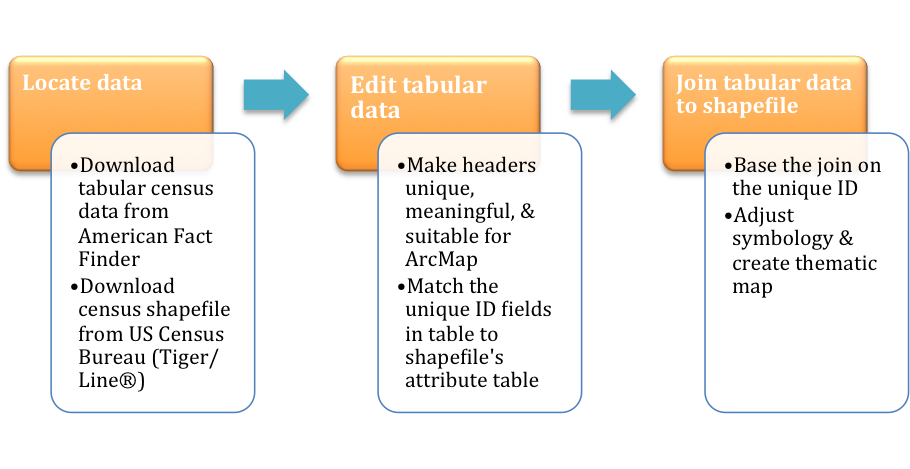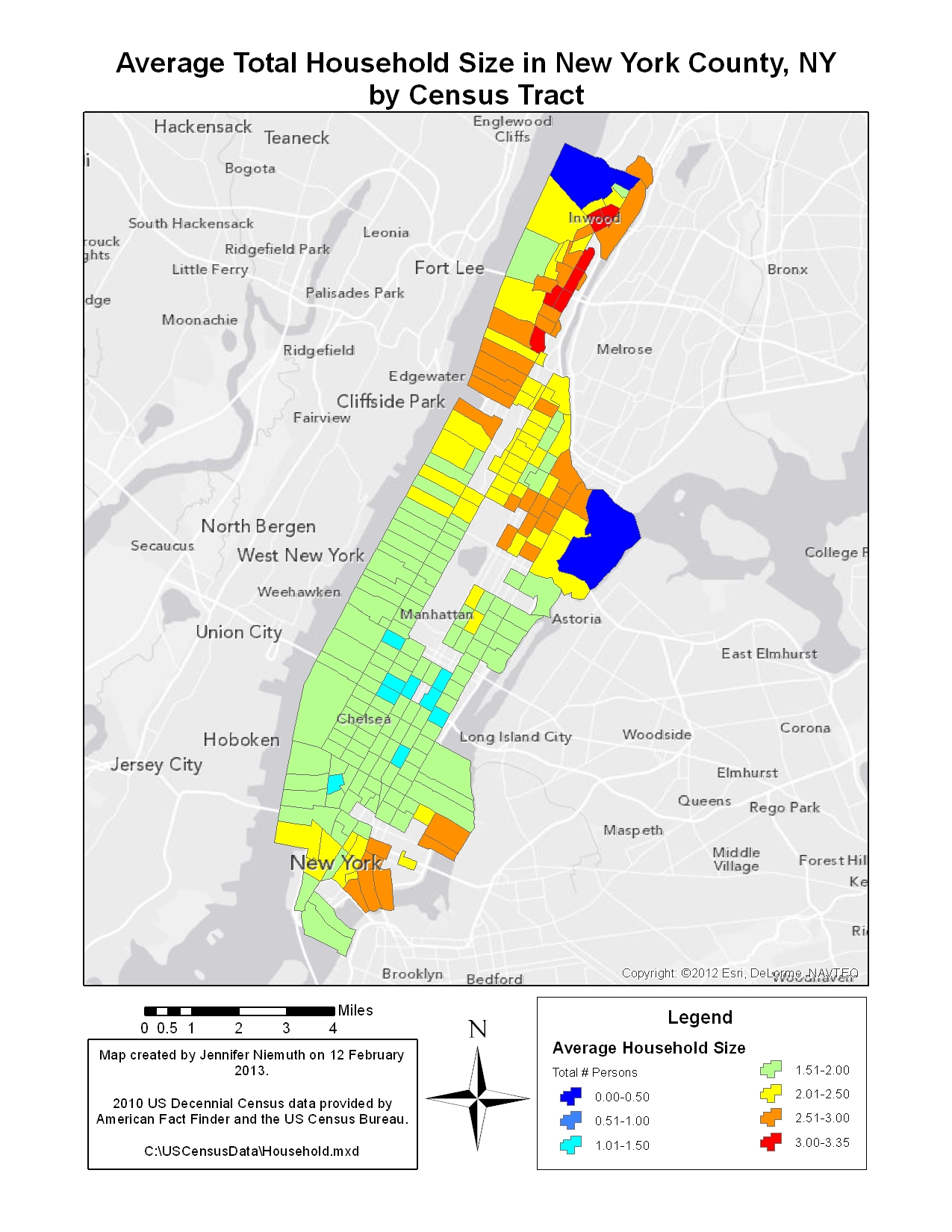Problem: Create a thematic map using an attribute from the US census data for any geographic area.
- Table & attribute utilized:
- DEC_10_SF2_PCT7_with_ann: PCT7, Average household size by age
- New York County, NY
- D002: Average household size, total
- DEC_10_SF2_PCT7_with_ann: PCT7, Average household size by age
Analysis Procedures: US Census data is freely available to the public and can be used to create thematic maps for any area of the country (Fig. 1). Tabular data from the American Fact Finder website is selected by choosing the necessary dataset (e.g. 2010 census), geographic area (e.g. state, county, city, etc.), and topic of interest (e.g. education, income, ethnicity, etc.). Once this data is downloaded, the corresponding Tiger/Line® shapefile must be obtained from the US Census Bureau. The tabular data must be edited so that the headings are unique and descriptive and also so the unique ID (e.g. census tract number) matches the formatting found in the corresponding field in the shapefile. After the tabular data has been edited it can be joined to the shapefile using the unique ID. Finally, the symbology is adjusted and a thematic map created. A procedure log for this exercise is available here.

Figure 1. General workflow diagram for obtaining and joining US Census data to create a thematic map in ArcMap.
Results:

Figure 2. Average total household size in New York County, NY (Manhattan) by census tract from the 2010 census. Click on map for enlarged image.
Application and Reflection: The skills and concepts from this exercise could be used in a wide variety of applications. Income or education status could be used to help direct efforts to obtain support or funds for the projects of a university, museum, etc. The ratio of vacant to occupied housing units may be useful for planning a new park or nature area.
The US Census Bureau also collects an immense range of information beyond the decennial census. Specifically with regards to wildlife, there is a National Survey of Fishing, Hunting, and Wildlife-Associated Recreation. This includes activities such as observation, photography, and feeding and could be used to direct zoonotic disease education efforts. There is also data regarding trips and related expenses, which could be important when arguing legislation that impacts tourism and recreational uses of wildlife.
In North Carolina, the Game Fish Bill (NC House Bill 353) has sparked controversy for many reasons, one being the argument that designating certain species as game fish (i.e. no commercial fishing) would provide greater economic benefit for the state through tourism related expenses. To learn more, please view the interview below with Dr. Louis Daniels of the NC Division of Marine Fisheries.
https://youtu.be/VFeqLe4IgEs
